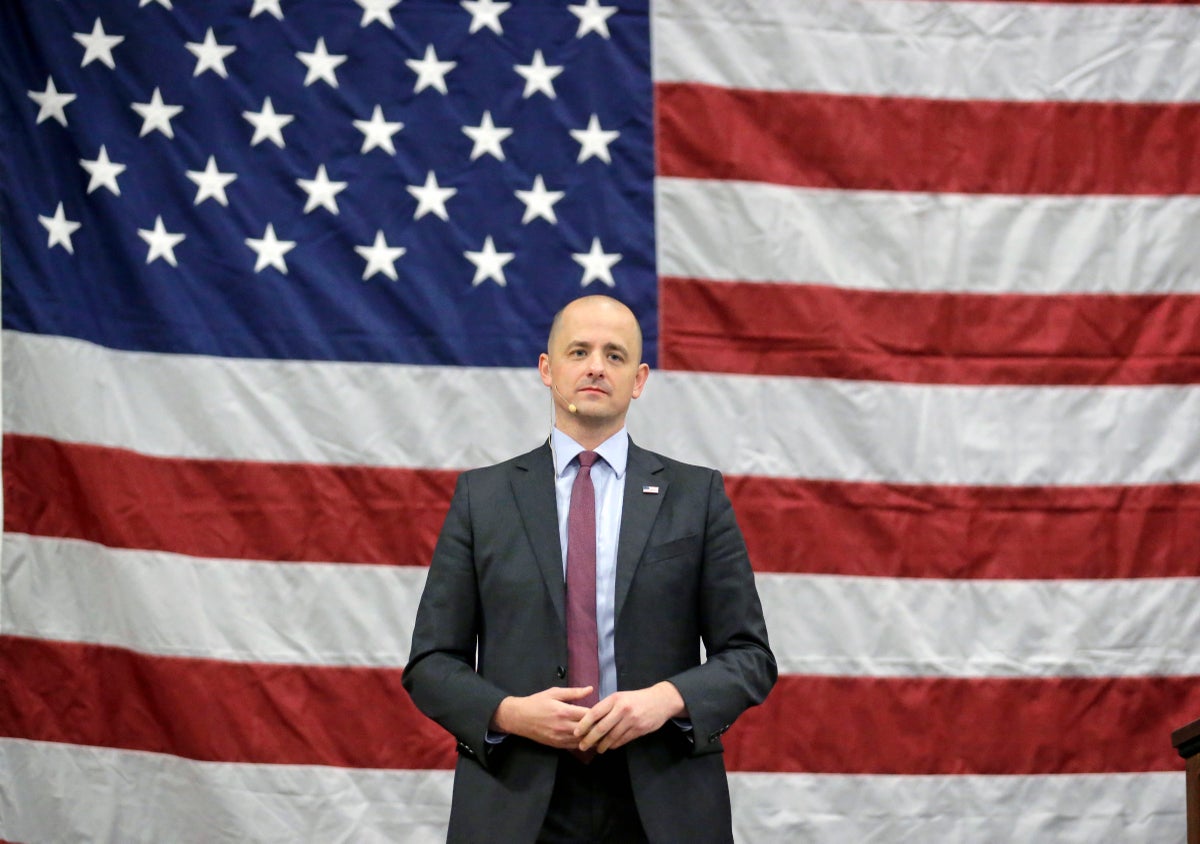
Utah Republican Sen. Mike Lee and his independent challenger Evan McMullin are scheduled to face off Monday evening at a televised debate three weeks before Election Day.
Though Utah is a deeply conservative state that has been represented by Republicans in the U.S. Senate since 1976, the race has become surprisingly competitive, with both candidates bombarding airwaves and mailboxes with attack ads and campaigning aggressively throughout the state.
Lee, a second-term Republican, has represented Utah since he unseated an establishment Republican in the 2010 Tea Party wave. Though before the 2016 election he denounced Donald Trump's rhetoric and hardline positions on immigration and refugees, throughout the former president's tenure, he emerged as one of his most loyal allies.
Given Lee's trajectory, many observers see the race as a referendum on the direction Trump has taken the Republican Party. It will reflect whether Republicans continue to have a stranglehold on voters in Utah, a state where a majority of voters are members of The Church of Jesus Christ of Latter-day Saints. Polling has shown Trump has fared worse than other Republicans with members of the faith, which places a high value on manners and eschews alcohol and foul language.
McMullin is a former CIA agent and House Republican staffer who left the party and ran for president as an independent in 2016, winning more than one out of every five votes in Utah. He hopes to channel the state's moderate reputation and anti-Trump sentiment. He successfully persuaded the state Democratic Party to not nominate a candidate of their own earlier this year, hoping to cobble together a coalition of Democrats, independents and disillusioned Republicans to unseat Lee.
McMullin's campaign has focused largely on depicting Lee as a threat to democracy, highlighting text messages he sent to Trump Chief of Staff Mark Meadows in the lead-up to the Jan. 6, 2021 attack on the U.S. Capitol. The texts show Lee asking for advice on how to contribute to efforts to challenge the election results. Lee has defended his actions by saying he merely intended to look into the legal arguments and noting that he ultimately voted to certify the results.
Lee's campaign trail message has highlighted his record of voting according to his principles, even when it can be unpopular or threaten government shutdown. He has attacked McMullin for not articulating positions on key midterm election issues — including abortion and infrastructure spending — and argued that a vote for him could deny Republicans a majority and sway the Senate to Democrats.
Lee remains overwhelmingly popular among the Republican base, which enthusiastically backed him at the party's April convention.
Though Utah has been an electoral afterthought in past cycles, this year's Senate race has attracted national attention. Democratic presidential primary candidate Andrew Yang campaigned for McMullin in Salt Lake City last week and Republican congressman Adam Kinzinger is scheduled to join him on Thursday in Salt Lake City. Wyoming Sen. John Barasso and Rep. Chip Roy traveled to Utah to support Lee last week. The right-leaning political action committee Club for Growth has funneled millions into ads in support of Lee.







